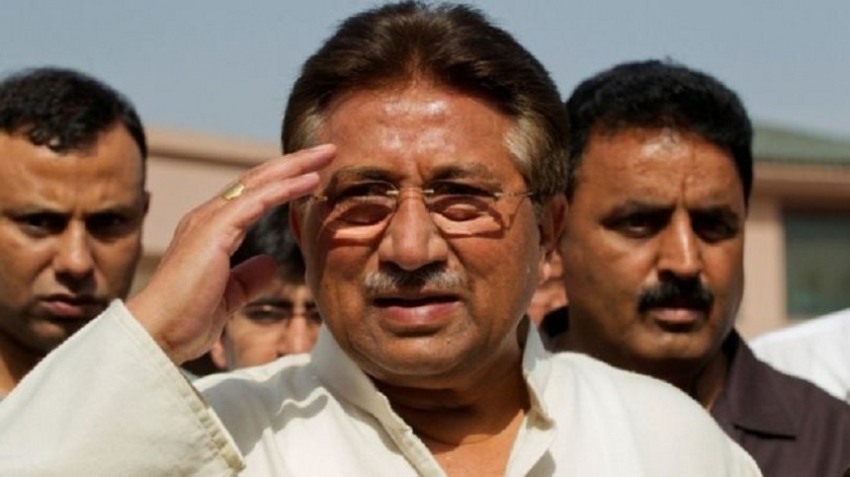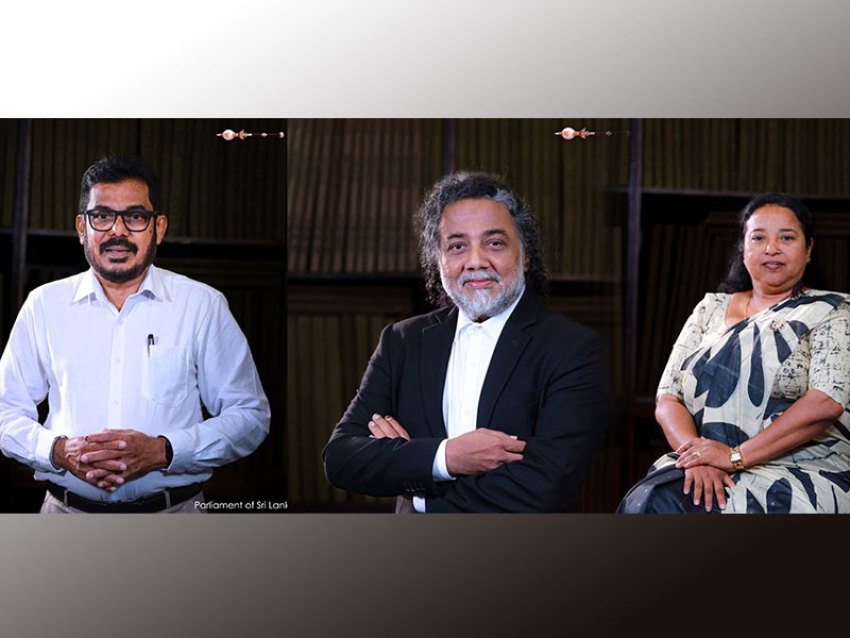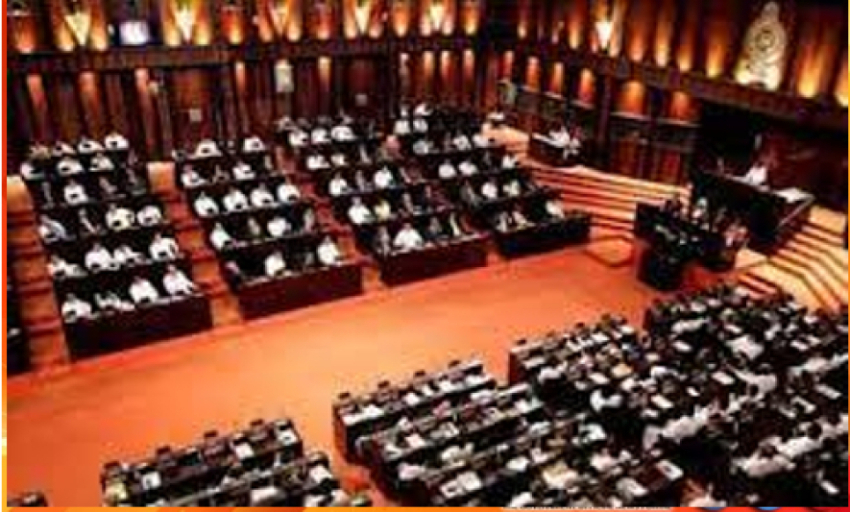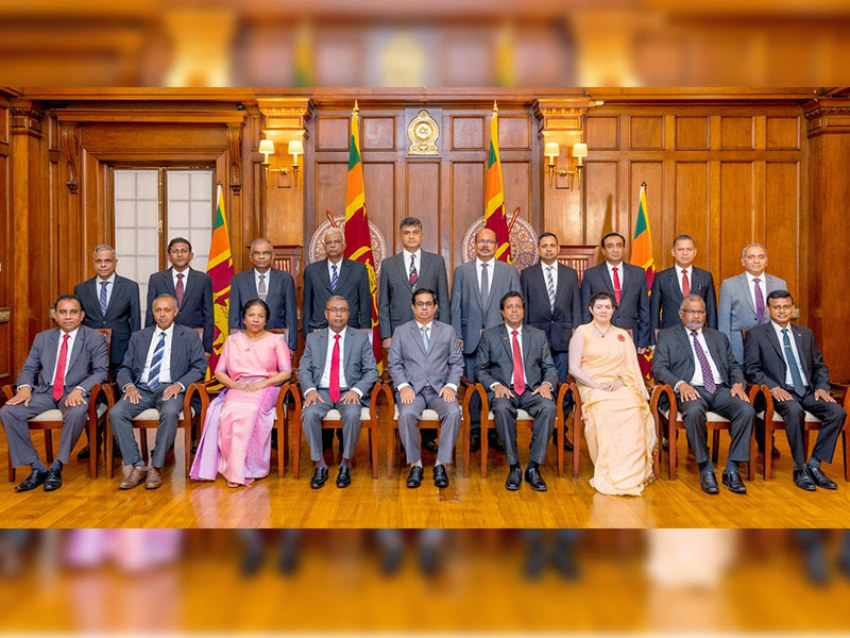General Pervez Musharraf, Pakistan's former military leader, has been sentenced to death at a special court hearing in Islamabad.The three-member court sentenced him over a high treason charge that has been pending since 2013.Gen Musharraf seized power in a military coup in 1999 and served as the country's president from 2001 to 2008.He is currently in Dubai after being allowed to leave the country for medical treatment in 2016.The charge relates to Gen Musharraf's suspension of the constitution in 2007, when he imposed emergency rule in a move intended to extend his tenure.
He issued a video statement from a hospital bed earlier this month, describing the case against him as "baseless".Gen Musharraf is the first military ruler to ever stand trial in Pakistan for overruling the constitution.The verdict was announced Tuesday with a 2-1 majority.In November 2007, Gen Musharraf suspended the constitution and imposed emergency rule - a move which sparked protests. He resigned in 2008 to avoid the threat of impeachment. in a coup in 1999 - was elected prime minister in 2013, he initiated a treason trial against Gen Musharraf and in March 2014 the former general was charged for high treason.Gen Musharraf argued the case was politically motivated and that the actions he took in 2007 were agreed by the government and cabinet. But his arguments were turned down by the courts and he was accused of acting illegally.According to the Pakistani constitution, anyone convicted of high treason could face the death penalty. Gen Musharraf has been living in Dubai since 2016 and he has steadfastly refused to appear before the court, despite multiple orders.
The indictment of Gen Musharraf in 2014 for treason was a highly significant moment in a country where the military has held sway for much of its independent history.Many of Pakistan's army chiefs have either ruled the country directly after coups, as Gen Musharraf did, or wielded significant influence over policymaking during periods of civilian rule.
Gen Musharraf is known internationally for his support of the US "war on terror"
But Gen Musharraf was the first army chief to be charged with such a crime and it is believed that the powerful military has watched the case carefully.Analysts say the institution is deeply aware that how the case proceeds could set a precedent.He was appointed to lead the Pakistani army in 1998.The army's involvement in the Kargil War in May 1999 caused a major rift between him and then-Prime Minister Nawaz Sharif, and the army general seized power in a coup in 1999.Serving as president until 2008, Gen Musharraf survived numerous assassination attempts and plots against him during his time in power.He is best known internationally for his role in the US "war on terror", which he supported after the 9/11 attacks despite domestic opposition.Gen Musharraf left the country after relinquishing the presidency in 2008, but returned in 2013 to contest the general elections, when he was barred from standing by the courts and was embroiled in several cases.He appeared only twice in hearings for treason and earlier spent time at an army health facility or on his farm in Islamabad. He subsequently moved to Karachi in April 2014, where he lived until his departure two years later.
Pakistan's military leader who was found guilty of treason
The fortunes of Pervez Musharraf, Pakistan's most recent military ruler, have see-sawed in the last two decades.After seizing power in a 1999 coup, he went on to survive numerous assassination attempts, and found himself on the front line of the struggle between militant Islamists and the West.But by 2008, the career soldier had suffered defeat at the polls and was accused of unlawfully suspending the constitution to impose emergency rule.And then, 20 years after his rise to power, he was sentenced to death in absentia after being found guilty of treason.
BBC
Pervez Musharraf
At a glance
1943Born in Delhi, India
1961Joins Pakistan Military Academy
1999Leads bloodless coup and becomes president two years later
2007Loses power
2008Goes into self-imposed exile - returns from 2013 to 2016
2014Charged with high treason
Source: BBC
Pervez Musharraf was born in Delhi on 11 August 1943 to Urdu-speaking parents who migrated to Pakistan after the partition of the Indian sub-continent in 1947.
After a long career in the military he became chief of staff in 1998 under then-prime minister Nawaz Sharif - before dramatically toppling his elected government the following year.
His appointment had been a gamble for Mr Sharif, who promoted him over the heads of more senior generals as he sought to exert control over the military.
Mr Sharif's own popularity was at the time plunging amid an economic slump and controversial reforms, as well as fallout over a crisis in Kashmir. Pakistan had been embarrassed by a failed attempt to seize territory in Kashmir that year, and the military were unwilling to take all the blame.
When Mr Sharif moved to replace Gen Musharraf, his army chief outmanoeuvred him, spotting his chance to seize power with the weight of the military behind him.
But his decision to support President George W Bush's "war on terror" in 2001, following the 11 September attacks, inevitably meant that he would end up clashing with militants sympathetic to both the Taliban - who Pakistan's army has long-been accused of links to - and al-Qaeda.
The president was often described as walking a tightrope as he sought to balance pressure from the US to crack down on extremism in Pakistan and the demands from an increasingly vocal and anti-American Islamist constituency.
Media captionHow much influence does the Pakistani army have in politics?
Afghanistan also loomed large.
Mr Musharraf was frequently accused by Nato and the Afghan government of not doing enough to stem the movement of militants sympathetic to al-Qaeda and the Taliban from Pakistan's tribal areas into Afghanistan.
Pointed questions over his record re-surfaced in 2011 when Osama Bin Laden, the al-Qaeda leader, was found to have been living for years in Pakistan, not far from a military academy - something Gen Musharraf denied he knew.
Fall from power
Gen Musharraf's time in power was also marked by struggles with the judiciary, including protracted disputes over his oft-stated desire to remain head of the army while simultaneously being president.
In early 2007 he sacked chief justice Iftikhar Muhammad Chaudhry, sparking a country-wide protest movement.
Months later he ordered a bloody siege at Islamabad's Red Mosque with its adjacent Islamic school, resulting in the deaths of more than 100 people. Clerics and students of the mosque were accused of waging an increasingly aggressive campaign to enforce a strict interpretation of Sharia law in Pakistan's capital.
The outrage over that episode led to the creation of the Pakistani Taliban and a campaign of bombings and attacks that left thousands dead.
When Nawaz Sharif returned from exile in late 2007, it marked the beginning of the end of the Musharraf era.
The former general tried to extend his tenure by imposing emergency rule but in February 2008 his party lost parliamentary elections. Six months later, he resigned to avoid impeachment and then left the country.
Mr Musharraf dramatically announced his resignation in August 2008
Living in London and Dubai, the former president is believed to have earned hundreds of thousands of dollars on worldwide lecture tours. But he never made any secret that his main ambition was to return to power in his homeland.In March 2013, he dramatically returned to Pakistan to compete in elections but it ended in humiliation and arrest. He was barred from standing and his All Pakistan Muslim League (APML) performed as badly as many had predicted.
He became quickly embroiled in a slew of court cases, including being accused of failing to provide adequate security for Benazir Bhutto, whose assassination by the Taliban in 2007 shocked Pakistan and the world. A 2010 United Nations inquiry into the murder had accused Gen Musharraf's government of "wilful failure" to protect the former prime minister.The same year, he was accused of treason over his decision to suspend the constitution back in 2007.But the trial was never going to be easy in a country where the military has ruled on and off since independence and continues to hold great sway. So the government decided to set up a special court to try the former military leader.It took more than five years before the judges in the case handed down their shock ruling: Gen Musharraf was guilty, the three member bench said.He was handed the death penalty.What that comes to really mean remains to be seen, however. In 2016, after a travel ban was lifted for medical reasons, he again left the country and has been living in Dubai ever since.
Former President Pervez Musharraf speaks out
20 December 2013
Share this with Facebook Share this with Messenger Share this with Twitter Share this with Email Share
Image copyrightAFP
Image caption
Former President Musharraf remains confined to his Islamabad residence
Former Pakistani military ruler Pervez Musharraf has spoken publicly for the first time since he was put under house arrest earlier this year.
In interviews given to two television channels on Thursday night, he defended his actions during his nine-year rule.
The former president faces charges of murder and restricting the judiciary.
He has been granted bail in all cases, but has been summoned to a court hearing next week to face another charge of high treason.
Mr Musharraf has remained confined to his residence in Islamabad because of security concerns. He is on a list of individuals not allowed to travel abroad.
The treason accusation relates to his decision in 2007 to impose emergency rule shortly before the Supreme Court was due to decide on the legality of his re-election as president while still being head of the army.
"I will inshallah (God willing) get out of this pressure because I am pretty sure I did not commit any wrong thing. Whatever I did was for the betterment and welfare of Pakistan and its people," he told Pakistan's private ARY television channel.
"I will face all cases... I will not run away,"
Resurgent judiciary
Gen Musharraf seized power in a military coup in 1999, and remained president until 2008 when a democratically-elected government forced him to resign.
He went into exile soon afterwards, apparently to avoid possible imprisonment by a resurgent judiciary whose judges he had sacked during his rule.
Image copyrightAP
Image caption
Pervez Musharraf could face the death penalty if convicted of treason
He also faced threats from Pakistani militants who blamed him for ordering the storming of Islamabad's Red Mosque in 2007 in which more than 100 people, many of them militants, were killed.
He returned to the country in March to stand in elections, but was barred from contesting by the courts.
Soon afterwards he was put under house arrest on a slew of charges, including the murder of former Prime Minister Benazir Bhutto, the killing of a tribal Baloch politician, placing judges under house arrest and ordering the Red Mosque operation.
In his first television appearance in months, Mr Musharraf defended himself against those charges and the treason allegations.
Correspondents say that so far the cases against him have proceeded slowly, veering from adjournment to adjournment with little clear progress apart from the granting of bail.
In November the government ordered the 70-year-old to appear before a special court on 24 December to face the treason charges. The BBC's M Ilyas Khan in Islamabad says that it will be the first time in Pakistan's history that a former military ruler will face trial for treason.
But Mr Musharraf said on Thursday that he was ready to face the trial.
"These are all [fraudulent] cases which lack any substantial evidence," he said.
"Whatever I did, I did for the people of Pakistan keeping the state's best interests in mind," he said.
The former president also spoke about the Taliban threat, saying unless terrorism was controlled Pakistan would neither see investment nor a sound economy.
"The Taliban are our people so we should speak to them, but we shouldn't beg them," he said.




















